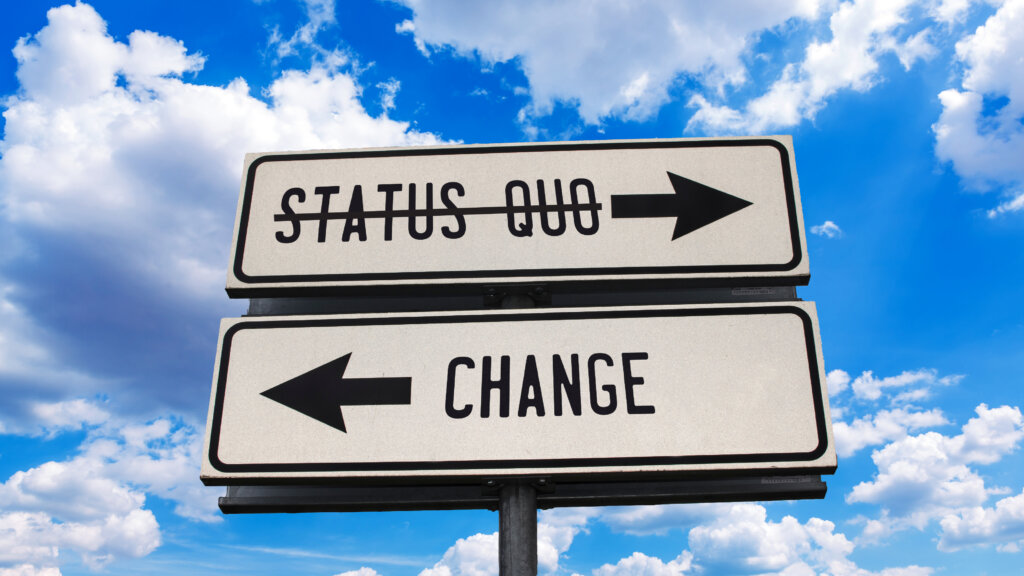Developing an Unwillingness to Accept the Status Quo

John Maxwell teaches that three things make a great leader. First, leaders must have a compelling vision. Second, great leaders have influence that causes people to follow because they want to, not because they have to. And third, leaders must be unwilling to accept the status quo. Where we are is never where we can stay.
Why must we always be changing?
There will inevitably be people on your team who ask why we must constantly be changing things. We need to communicate to these people that everything around us is changing. The minute we stop looking for ways to innovate and grow is the minute we begin to fall behind and lose our ability to compete.
The Skill of a World-Class Change Leader
Leaders who lead change well start by adopting the mindset of a change agent. This change agent mindset won’t allow the leader ever to be happy with how things are. John Maxwell once said that status quo is Latin for “the mess we are in.” While he was being funny, he spoke the truth. Being satisfied with the status quo means that our current situation is good enough and that we don’t need to improve.
Leadership researchers and authors Dr. Joe Folkman and Dr. Jack Zenger have suggested that leaders who lead change well have specific skills:
1. INSPIRE POSITIVE CHANGE.
The skill set of a world-class change agent starts with the ability to encourage innovation from the team. They believe there is always a better way to do things and actively encourage the people on their team to look for that better way.
2. QUICKLY EFFECT CHANGE.
Change leaders also move quickly. They understand that market conditions and customer expectations are moving swiftly. Change is not an event but a constant state of being if we hope to excel in these volatile times.
3. IMPLEMENT STRATEGIC CHANGE.
Changing for the sake of changing is not something skilled change leaders do. Instead, they ensure that any change initiative is consistent with the organization’s strategic objectives. All change must move the organizational strategy forward. At the same time, skill change leaders have an eye on the external components of how the world is changing. They understand how the change they seek will fit into the world they see coming.
4. BALANCE MANAGING WITH LEADING CHANGE.
Finally, effective change leaders must balance the push and pull of leading change with their team. The push is how we manage the deadlines and deliverables of a change effort. The pull refers to inspiring and motivating the team to keep progressing with the change effort. Without balancing the push and the pull, change efforts may slow or stall before reaching the desired result.
Change is constant, and the status quo is dangerous. Develop the mindset of a change agent and coach those you lead to do the same.
Looking for more corporate leadership insights?
Every week, Maxwell Leadership’s staff of industry-leading growth and development professionals releases free leadership resources for the benefit of you and your team. Our Executive Leadership podcast offers expert insights on today’s most pressing corporate leadership topics, while our Maxwell Leadership podcast highlights transformational influence.
If you’re a leader ready to transform your organization, get in touch with us today.
More Articles

How to Motivate Your Team During Challenging Times

How to Earn a Seat at the Table









Be the first to comment on "Developing an Unwillingness to Accept the Status Quo"